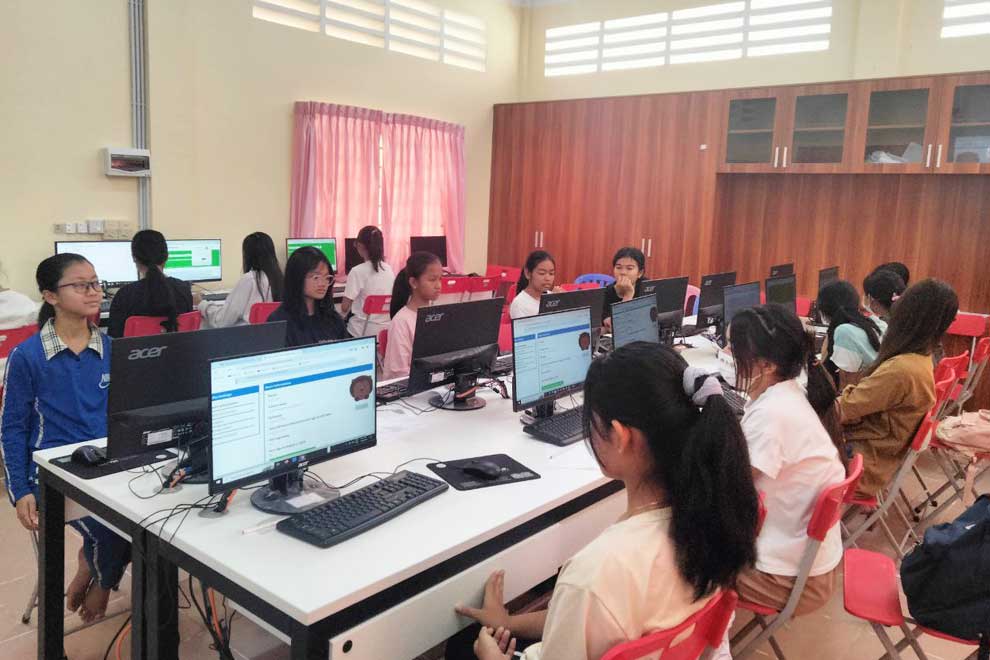
Students take extra-curricular ICT and entrepreneurship classes at a secondary school in February. MoEYS
The Ministry of Education, Youth and Sport has established several “extra-curricular clubs” on information and communications technology (ICT) and entrepreneurship in several secondary schools across Cambodia.
According to the ministry, the establishment of the clubs, held each weekend with the support of existing teaching staff, are designed to strengthen the capacity and ethics of students.
In a February 5 social media post, it explained that the teachers are teaching coding skills and the creation of mobile applications that will solve problems in the students’ communities as well as global issues.
The clubs encourage students to acquire technology skills, in line with the context of the digital revolution of education and 21st century skills, as well as to promote digital education in Cambodia.
Ministry spokeswoman Khuon Vicheka noted that extra-curricular classes are also widely available in many other subjects, including mathematics, history, physics, foreign languages, physical education and any other subjects that the ministry sees as necessary.
“The establishment of these extra classes is in response to the four key points set by Prime Minister Hun Manet’s government. They are intended to strengthen governance, with close attention to students’ health, education and partnerships with the community,” she said.
Kong Samneang, head of the Federation of Education Services in Cambodia, praised the implementation of the extra-curricular clubs, suggesting that they would encourage students to pursue self-studies and could be tailored to meet current educational demands.
“I fully support the establishment of the clubs and urge all school principals to be self-reliant and self-leading, rather than waiting for instructions from the ministry. Each school needs to have strong leadership that will ensure students have the skills they need to be competitive in the 21st century,” he said.
Over the past five years, the majority of schools that have implemented the new classes are the New Generation Schools (NGS) and those that have been selected for the ministry’s secondary education development project.
For the new school year, the ministry has incorporated a standard model that all schools across the country must follow.
The ministry will assess the performance of the extra-curricular clubs and may introduce them into the common curricula, added Vicheka.











